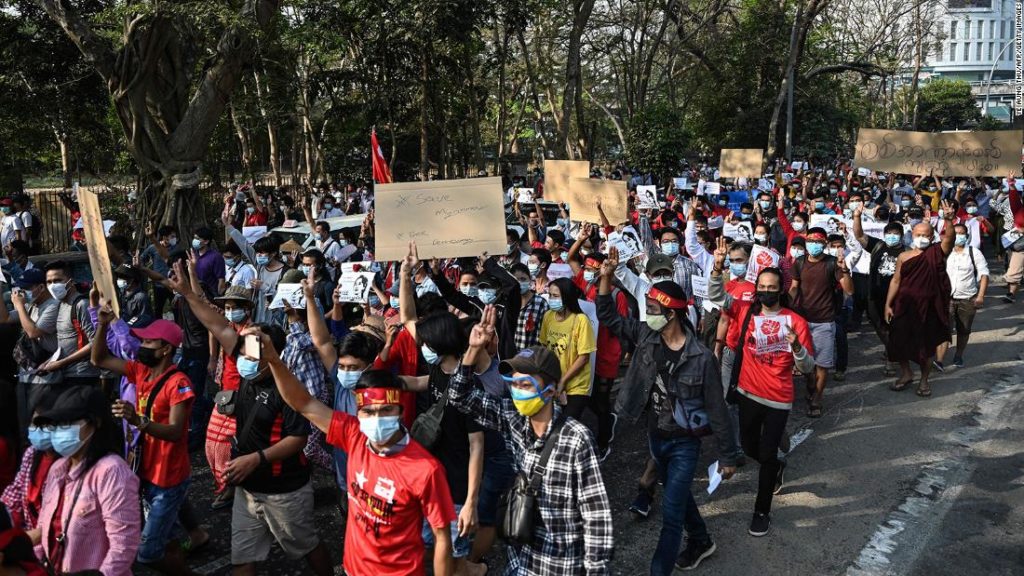Protesters on Sunday have been marching around the Yangon University area, changing directions to avoid roadblocks and any confrontations with police. A witness has seen several police trucks in the area.
Resistance to the coup had initially proved limited, due in part to widespread communications difficulties, as well as fears of a further crackdown.
Internet monitoring service NetBlocks said Saturday that the country was in the midst of a second “national-scale” internet blackout as the military attempted to secure its grip on power.
According to NetBlocks, real-time network data showed connectivity had fallen to 16% of ordinary levels and users had reported difficultly getting online.
The Myanmar Ministry of Transport and Communications (MoTC) ordered the nationwide shutdown of the data network on Saturday, according to Norwegian telecommunications company Telenor Group, which runs Telenor Myanmar.
The group, writing on Twitter, said the ministry cited “Myanmar’s Telecommunication Law, and references circulation of fake news, stability of the nation and interest of the public as basis for the order.”
Communication between protesters Sunday was largely through SMS texts, phone calls, and word of mouth, according to a witness in Yangon. On Saturday, crowds announced where to gather Sunday, resulting in apparently improved organization, the witness said.
Members of the Student Union, Labour Union, and Suu Kyi’s National League for Democracy Party (NLD) were expected to join the protest throughout Sunday.
Coup sparks protests
For more than 50 years, Myanmar — also known as Burma — was run by successive isolationist military regimes that plunged the country into poverty and brutally stifled any dissent. Thousands of critics, activists, journalists, academics and artists were routinely jailed and tortured during that time.
The NLD was widely reported to have won another decisive victory in a November 2020 general election, giving it another five years in power and dashing hopes for some military figures that an opposition party they had backed might take power democratically.
The sudden seizure of power came as the new Parliament was due to open and after months of increasing friction between the civilian government and the powerful military, known as the Tatmadaw, over alleged election irregularities. The country’s election commission has repeatedly denied mass voter fraud took place.
Hundreds of NLD lawmakers were detained in the capital Naypyitaw Monday, where they had traveled to take up their seats. The junta has since removed 24 ministers and deputies from government and named 11 of its own allies as replacements who will assume their roles in a new administration.
CNN’s Helen Regan and James Griffiths contributed to this report.
You may also like
-
UK coronavirus variant has been reported in 86 countries, WHO says
-
NASA technology can help save whale sharks says Australian marine biologist and ECOCEAN founder, Brad Norman
-
California Twentynine Palms: Explosives are missing from the nation’s largest Marine Corps base and an investigation is underway
-
Trump unhappy with his impeachment attorney’s performance, sources say
-
Lunar New Year 2021: Ushering in the Year of the Ox

